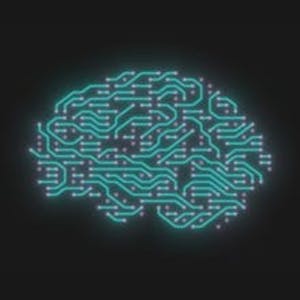This six-course specialization by IBM is designed to equip practicing data scientists with the skills to build and deploy AI solutions in large enterprises. It prepares learners for the IBM AI Enterprise Workflow V1 Data Science Specialist certification exam by explicitly connecting business priorities to technical implementations and machine learning to specialized AI use cases.
The specialization begins by introducing the scope and prerequisites, including knowledge of probability, statistics, linear algebra, and Python tooling for data science and machine learning. Learners will be guided through the use of enterprise-class tools on the IBM Cloud, focusing on data science in large, modern enterprises. The courses cover data ingestion, exploratory data analysis, hypothesis testing, feature engineering, bias detection, machine learning, visual recognition, NLP, model deployment, and AI in production.
Certificate Available ✔
Get Started / More Info
This six-course specialization guides practicing data scientists through the IBM AI Enterprise Workflow, covering business priorities and data ingestion, data analysis and hypothesis testing, feature engineering and bias detection, machine learning, visual recognition, NLP, model deployment, and AI in production.
This first course introduces learners to the scope of the specialization, prerequisites, and the concept of design thinking. It also covers the basics of scientific thinking and guides learners through building a data ingestion pipeline using Python and Jupyter notebooks.
This course focuses on exploratory data analysis, best practices for data visualization, handling missing data, and hypothesis testing. Learners will apply estimation techniques, probability distributions, and null hypothesis significance tests through case studies.
Learners will delve into feature engineering, class imbalances, bias detection in data, dimension reduction, outlier detection, and unsupervised learning techniques. Case studies focus on topic modeling and data visualization.
This course covers evaluation metrics, model selection, linear models, tree-based models, neural networks, and out-of-the-box Watson models for natural language understanding and visual recognition. Case studies focus on natural language processing and image analysis.
Learners will explore Apache Spark for running machine learning models, best practices for data manipulation, model training, and tuning. The course culminates with creating and deploying a recommender system and an introduction to model deployment technologies.
This final course focuses on deploying models in a hypothetical streaming media company, using IBM Watson Machine Learning, Docker containers, Kubernetes, and other tools in the IBM ecosystem. It also covers feedback loops and unit testing in model production.
Build an Anomaly Detection Model using PyCaret in this hands-on course. Learn to develop, evaluate, and fine-tune the model in under 2 hours.
Getting started with TensorFlow 2 provides hands-on training in developing deep learning models using TensorFlow's Sequential API, culminating in a Capstone Project...
Modèles de séquence covers advanced techniques in sequence modeling for natural language, audio, and other sequence data. Dive into recurrent neural networks,...
Uncover the power of unsupervised learning, recommender systems, and reinforcement learning in this comprehensive machine learning course.